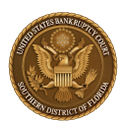The following guidelines apply to all motions filed pursuant to Bankruptcy Rule 4001 and Local Rules 4001-2, 4001-3 and 9013-1(G) and (H) seeking authority to use cash collateral and motions seeking approval of postpetition financing filed in this court.
I. Motions - General
Except as otherwise ordered by the court, all cash collateral and financing requests under 11 U.S.C. §§363 and 364 shall be heard by motion filed pursuant to Bankruptcy Rules 4001, 6003 and 9014 (“Cash Collateral or Financing Motion”). A motion seeking authority to use cash collateral pursuant to 11 U.S.C. §363 shall comply with Bankruptcy Rule 4001(b) or (d) and Local Rules 9013-1(F) and (G). A motion seeking approval of postpetition financing pursuant to 11 U.S.C. §364 shall comply with Bankruptcy Rule 4001(c) and (d) and Local Rules 9013-1(F) and (H).
II. Motions - Content
(A) All Cash Collateral or Financing Motions must (1) recite whether the proposed form of order and/or underlying cash collateral stipulation or loan agreement contains any provision of the type indicated in Bankruptcy Rule 4001 and these Guidelines, (2) highlight any such provision in the proposed form of order, cash collateral stipulation or loan agreement as required by Bankruptcy Rule 4001 and herein, and (3) provide the justification for the inclusion of such provision.
Note: Provisions that grant cross-collateralization protection (other than replacement liens or other adequate protection) to the prepetition secured creditors (i.e., clauses that secure prepetition debt by post petition assets in which the secured creditor would not otherwise have a security interest by virtue of its prepetition security agreement or applicable law) shall not be permitted. (See In re Saybrook Manufacturing Co., Inc., 963 F.2d 1490 (11 Cir.1992).
(B) A request for the following provisions shall be in print either highlighted or bold as to make them more prominent than the remainder of the text:
(1) ALL THE PROVISIONS DESCRIBED IN BANKRUPTCY RULE 4001(B) AND (C).
(2) Provisions or findings of fact that bind the estate or all parties in interest with respect to the validity, perfection or amount of the secured creditor's prepetition lien, claim or debt or the waiver of claims against the secured creditor without first giving parties-in- formed, at least 60 days from the date of its formation to investigate such matters, and, if different than these time frames, the period of time after which any challenge is barred.
(3) Provisions or findings of fact that bind a subsequently appointed trustee.
(4) Provisions that grant liens on the debtor’s property that is unencumbered by consensual liens.
(5) Provisions that deem prepetition secured debt to be postpetition debt or that use post- petition loans from a prepetition secured creditor to pay part or all of that secured creditor's prepetition debt, other than as provided in 11 U.S.C. §552(b).
(6) Provisions that provide disparate treatment for the professionals retained by a creditors' committee from that provided for the professionals retained by the debtor with respect to a professional fee carveout.
(7) Provisions that subordinate any lien, without the consent of that lienor.
(8) Provisions that grant the secured creditor the right to exercise remedies upon a default by the debtor, without notice to the debtor and other parties-in-interest, a hearing, and further order of the court.
(C) All Cash Collateral or Financing Motions, even if less than five (5) pages, shall provide a bullet point summary of the essential terms of the proposed use of cash collateral or financing described in the Bankruptcy Rule 4001 and these Guidelines, and shall have as an attachment a budget setting forth the projected cash flow of the debtor for the period of time for which the credit is sought. If the debtor seeks authority for the use of cash collateral or authority to obtain credit sooner than 14 days after service of the motion, the motion must detail the amount of cash collateral the debtor seeks authority to use, or the amount of credit the debtor seeks authority to obtain, from the date of the preliminary hearing on the motion through and until the final hearing on the motion.
(D) The proposed form of order submitted with the motion shall expressly provide for a carveout for fees due the clerk of the court or the United States trustee pursuant to 28 U.S.C. §1930.
III. Additional Requirements for Motions Seeking Authority to Use Cash Collateral
In addition to the requirements of subsection II above, any motion seeking authority to use cash collateral shall identify:
(1) the basis upon which the secured creditor is entitled to assert a security interest in the cash collateral; and
(2) the amount owed to the secured creditor.
IV. Interim Relief
When Cash Collateral or Financing Motions are filed with the court on or shortly after the date of the entry of the order for relief, the court may grant interim relief, after notice and a hearing, pending review by the interested parties of the proposed debtor-in-possession financing arrangements. Such interim relief is intended solely to avoid immediate and irreparable harm to the estate pending a final hearing. Even if interim relief is granted, in the absence of extraordinary circumstances, the court shall not approve interim financing orders that include any of the provisions listed in section II (B) (1) through (8) of these Guidelines.
V. Final Orders
A final order shall be entered only after notice and a hearing pursuant to Bankruptcy Rule 4001 and Local Rule 2002-1(A). The final hearing shall not be held until at least 7 days following the organizational meeting of the creditors' committee contemplated by 11 U.S.C. §1102, unless the court orders otherwise.
VI. Agreement in Settlement of Objection to Cash Collateral or Financing Motion
All agreements in settlement of an objection to a Cash Collateral or Financing Motion must be in writing and must comply with the requirements of Bankruptcy Rule 4001(d).
CG-7 (rev. 12/01/09)
